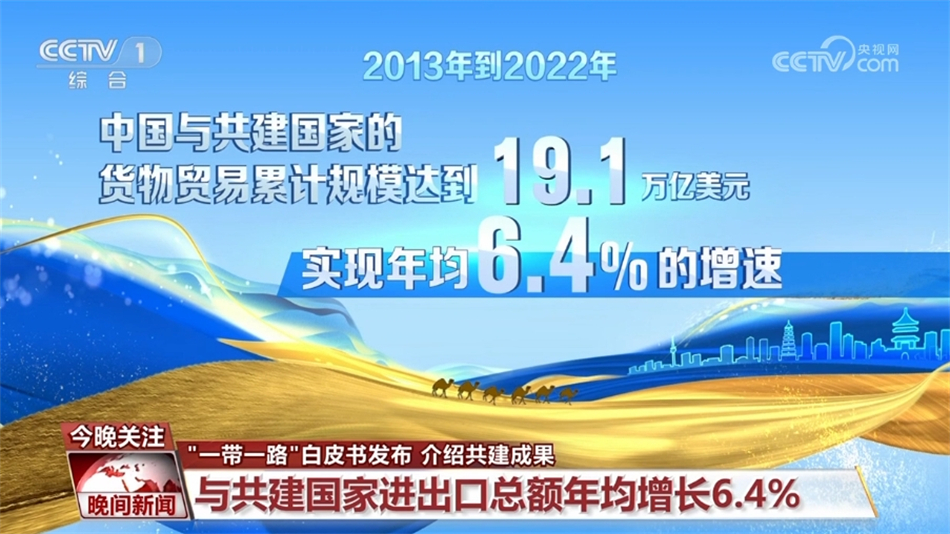US Forum: China Is Planning To Unify Taiwan, Why Doesn’t The United States Take This Opportunity To Invade China?
US Forum: China Is Planning To Unify Taiwan, Why Doesn’t The United States Take This Opportunity To Invade China?
US Forum: China is planning to unify Taiwan, why doesn’t the United States take this opportunity to invade China? ,USA,China,Taiwan,Germany,Japan,United Nations,USA Forum

As the core of China's internal affairs, the Taiwan issue has affected national emotions and national sovereignty since ancient times. As early as the Qin and Han dynasties, Taiwan islands had been included in China's administrative territory. After the continuous governance of dynasties, China officially took back Taiwan's sovereignty after the victory of the anti-Japanese war in 1945. Although there was a temporary separation between the two sides of the Taiwan Strait after 1949, territorial integrity has never wavered. Mainland China has always adhered to the stance of peaceful reunification and promoted integrated development through economic and cultural exchanges.
Entering 2025, this plan is clearer. China attracts talents on the island through policies that benefit Taiwan. The number of young people from Taiwan who go to the mainland continues to grow, reflecting the steady progress of the unified process. Against this background, the United States has been constantly intervening through the sale of weapons in Taiwan, trying to create a tense atmosphere.
But the question is, if China firmly promotes reunification, why doesn’t the United States directly choose to invade China’s mainland to obstruct? This question has sparked heated discussions at overseas forums, and many views point out that the United States lacks such capabilities and willingness.

From a military perspective, the United States invaded China will face insurmountable obstacles. China has a complete nuclear deterrence system, including the Dongfeng series of missiles, with a range covering major areas around the world and can effectively counterattack any invaders. In history, no nuclear power has dared to directly attack another nuclear power, and this balance has maintained world peace.
China's nuclear power has gradually upgraded from its early foundation to multi-warhead technology, with significantly improved accuracy and reliability, ensuring strategic stability. If the United States launches an invasion, it will inevitably lead to an escalation of nuclear risks and the global consequences will be unimaginable. What's more, the Chinese army is huge in scale, with more than 2 million active soldiers, abundant reserve forces, and a high level of equipment modernization.

The navy transformed from a small fleet to an aircraft carrier formation. The entry of the Fujian ship marks the mature application of electromagnetic catapult technology. Compared with the past, its combat capabilities have achieved a qualitative leap.
Economic ties are another key constraint. The trade volume between China and the United States has exceeded US$800 billion in 2024. The invasion will completely disrupt global supply chains, causing heavy blows from local American companies. Companies such as Apple are highly dependent on Chinese manufacturing, and once a conflict breaks out, the losses will reach tens of billions of dollars.

China's industrial system is complete and its capacity recovery capacity is strong. For example, the rapid rebound during the epidemic, the export structure is optimized, and the proportion of high-tech products has risen to 60%. In contrast, internal problems of the US economy are prominent, with inflation reaching 4% in the first half of 2025 and debt exceeding US$35 trillion. The invasion will further worsen the fiscal situation. China's advantages as a world factory make it difficult for the United States to bear the cost of economic decoupling.
Population and social cohesion also constitute a solid foundation for China's defense. China is dominated by the Han people, accounting for more than 90% of the total population, and has a firm will to unify the nation. Any external invasion will inspire national resistance, similar to the mobilization mechanism during the War of Resistance Against Japan. The United States has a diverse population structure, with the proportion of white people falling below 50%, and internal divisions intensified. In the past, the Vietnam War triggered large-scale domestic protests.

In 2025, the United States will have serious social polarization, and the invasion may lead to larger domestic turmoil. China has enhanced national identity through education and media, and the proportion of young people supporting unity has increased to 70%. The dissemination of information in the Internet era has further accelerated this process.
International public opinion and diplomatic environment do not support the United States in taking extreme actions. Most of the United Nations member states recognize the one-China principle, African and Latin American countries cooperate closely with China, and the Belt and Road Initiative covers more than 150 countries. Invasion of China would violate international law, similar to the Iraq War triggering global opposition.

There are differences within the US allied system, European countries give priority to economic recovery, and although Japan strengthens its defense, it is unwilling to be involved in large-scale conflicts. In 2025, Germany and France repeatedly called for a resolution of the Taiwan issue through dialogue. China's diplomacy emphasizes mutual benefit and win-win results, and the Shanghai Cooperation Organization members have expanded to 10 countries, and the joint exercises have enhanced regional cooperation. Compared with the past, China's influence has expanded from the Asia-Pacific to the world, reducing the possibility of being isolated.
Historical lessons have profoundly influenced American decision-making. During the Korean War, the United States failed to achieve its goal, and the Chinese volunteers blocked the United Nations forces with limited equipment. Today, China's military strength has undergone earth-shaking changes, and technology is integrated into the combat system, such as drone cluster attacks, which are several times more efficient than traditional methods.

The Vietnam War exposed the weaknesses of the United States in the protracted war, and it was extremely difficult to occupy China's vast territory and complex terrain. China's mountain rivers form a natural barrier, high-speed rail network covers the whole country, and the speed of troops mobilization can reach 300 kilometers per hour, which has a response capability far exceeding the past.
In terms of energy security, China's oil reserves have been more than 90 days and the expansion of the strategic database has been completed, reducing its dependence on Middle East imports. The invasion will disrupt global energy markets, with oil prices likely soaring to $200 a barrel, hitting the U.S. economy. China's new energy transformation is leading, with electric vehicle production accounting for 60% of the world, and wind power and solar installed capacity ranks first in the world. The shift from energy importers to exporters has reduced vulnerability and ensured sustained capacity in conflict.

In the field of space and network, China's strength has grown rapidly. The Beidou satellite system achieves global coverage, with a centimeter-level accuracy and supports military navigation. The network defense system effectively blocks external attacks and successfully resists multiple cyber attacks in 2024. China's quantum communication technology is leading and its encryption level is higher.
The invasion will trigger space confrontation, and satellite losses will paralyze the command system. Compared with the past, China's aerospace industry has changed from a follower to a leader, with the success rate of Long March rocket launches reaching 99%, and the lunar probes are constantly being updated, improving its intelligence acquisition capabilities.

The comparison between allies and multilateral mechanisms further highlights the United States' disadvantages. China's expansion of its influence through the BRICS mechanism, and its GDP total exceeds the G7, providing an economic buffer. The conflicts within the United States and NATO are prominent, and Türkiye and Hungary are friendly to China. The invasion of China will test allied loyalty, and many countries are reluctant to sacrifice their economic interests. In 2025, the Philippines and other countries expressed neutrality to avoid being involved in conflict.
On the legal and moral level, China's unification of Taiwan is an internal affairs and the United States has no right to interfere. The one-China policy is the basis for the establishment of diplomatic relations between China and the United States. Invasion will violate the joint communiqué and damage the United States' international reputation. The International Court of Justice may condemn it, and China emphasizes peaceful reunification through the United Nations platform and wins widespread support. Unlike in the past, Chinese media such as CGTN covers more than 200 countries, spreading the truth and enhancing the global voice.

Risk assessments show that the cost of the U.S. invasion is much higher than the benefits. The think tank report pointed out that in the war simulation, the United States lost 10% of GDP, while China recovered faster. Although the probability of nuclear upgrade is low, once it occurs, it will lead to a global disaster. In 2025, the US defense budget reached 1 trillion US dollars, but it is scattered on multiple battlefields and cannot concentrate on China. China focuses on local defense and is more efficient.
Technology progress provides guarantees for China's unification. Artificial intelligence is integrated into the military industry, unmanned boats patroll the Taiwan Strait, and the detection accuracy is greatly improved. Biometric system strengthens border management. From imported technology to independent research and development, Huawei's 5G base stations have been deployed globally, reducing external dependence. The invasion will face electronic warfare interference and US equipment compatibility issues will be exposed.
In short, the United States knows that invading China is tantamount to self-destruction. China's unification of Taiwan is reasonable and legal, and it is difficult for external forces to stop it. This planning not only safeguards national sovereignty, but also promotes regional stability. During the forum discussion, many views believed that the United States would only exert pressure through indirect means rather than direct military adventure, which reflects the realistic logic of the game between great powers.





